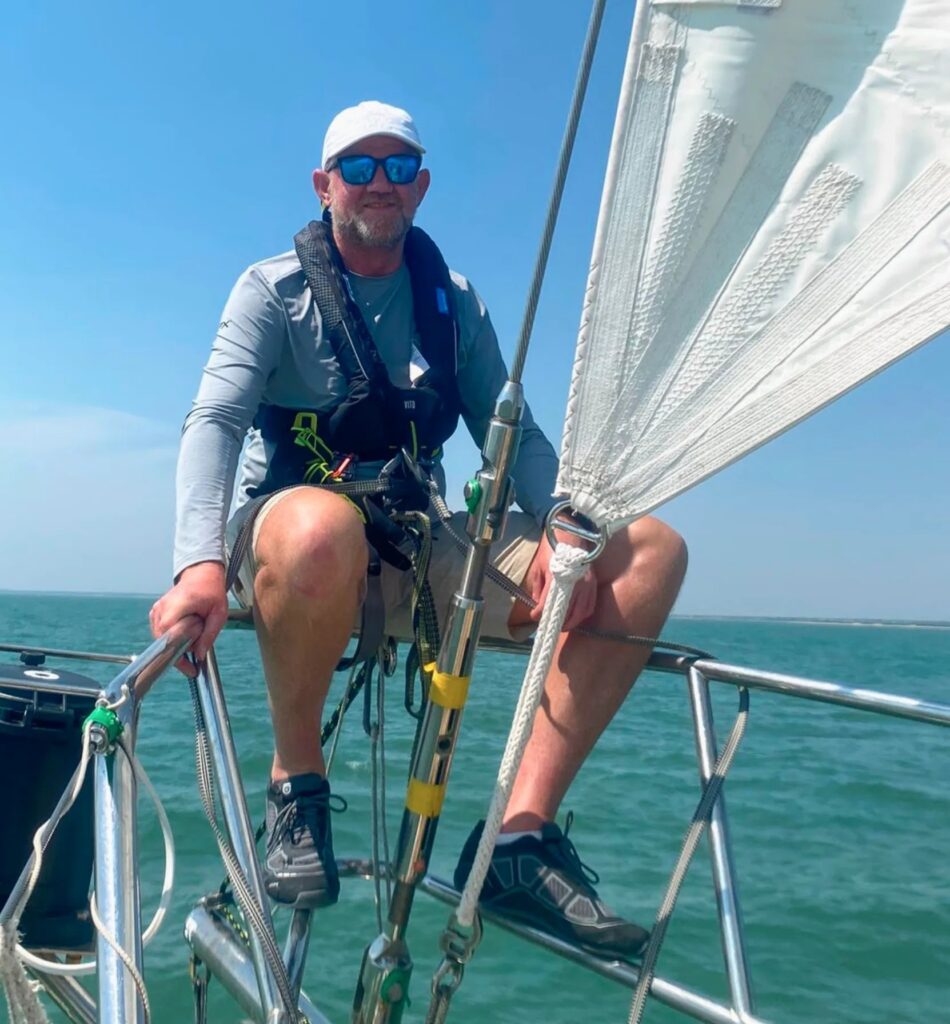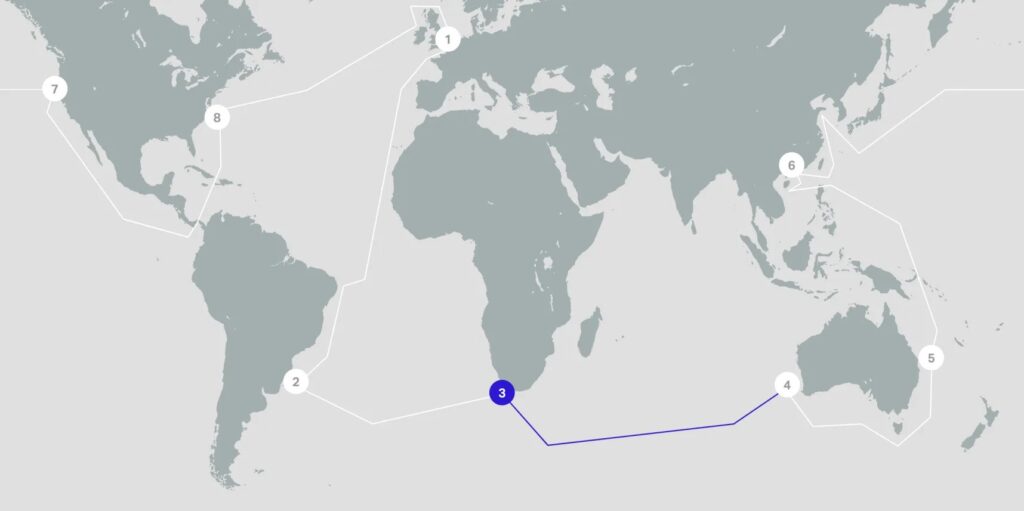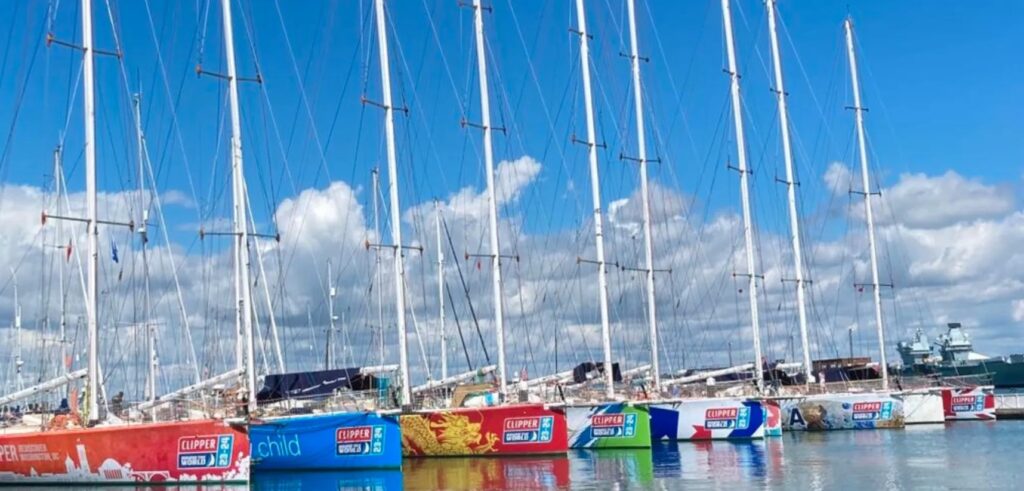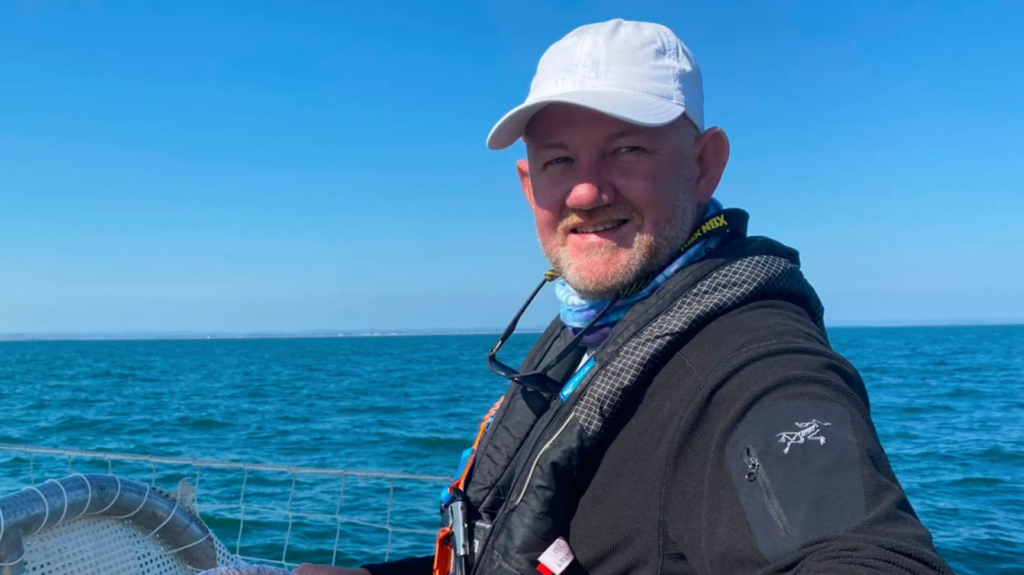From designing houses, to Army Veteran, to Fintech and Cybersecurity ninja, to competitive sailing adventurer, meet Andrew Eggleton, Director of Security Engineering at Airwallex.
We sat down with Andrew to explore his path to Airwallex and a few of the thrilling escapades he’s experienced along the way.
After spending 15 years of your career in the Australian Army, what made you pivot to the tech industry?
I have always had a passion for technology and pushing the boundaries of the possible. My first adult job out of university was an architect designing houses around Sydney, which was a great foray into technology as I was given the invaluable opportunity of rolling out Computer Aided Design (CAD) for the company. This was a game changer back then.
From there, I enlisted in the Australian Army and continued to pursue my interest in technology there where I found myself working with information, radio and satellite systems and seeing how to leverage the most out of them.
Later, when I was selected to join the Special Forces, I really got to think outside the box and help develop novel integrated systems for our teams to communicate around the world. This further led me down the exciting and challenging path of cyber security and I have never looked back.
The tech industry to me is very similar to when I was in the Army, in that it is pushing the known limits of what we think we know and creating more interesting capabilities once thought not possible.
You joined Airwallex in 2021. What attracted you to the company, and what are some successes you’re proud of over the two years?
I was finishing up my role on a cyber security project in the Middle East with my previous company, Palantir, and was eager to pursue a new opportunity that would bring me back home to Australia.
I had previously worked with our VP of IT and Information Security, Elliot Colquhoun, and he guided me into taking a look at Airwallex. The more I looked into the company the more my interest was piqued. I saw positive energy and enormous potential in the people and the company culture.
I joined Airwallex’s Information Security team in Melbourne, towards the tail end of COVID in 2021. While there were some benefits to having a fully remote role then, I actually preferred being able to come into our beautiful office in the Melbourne CBD and connect with my colleagues and wider teams in a way that I could not when we were all spread remotely.
Over my two years at Airwallex, I’ve witnessed our team more than double in size and our security program significantly mature. From implementing improvements with our Single-Sign-On user experience through Okta, supporting other Airwallex teams in securing our core infrastructure, to improving our security incident response processes – and this just naming a few examples. There is certainly a lot for our amazing INFOSEC team to be proud of.
We hear that you’re about to embark on an incredible Round-the-World sailing tour (Clipper race) to raise funds for UNICEF. How did this interest in sailing begin?
I have always had an interest in adventure sports and grew up rock climbing, scuba diving, sailing and anything else that gives me that shot of adrenalin. I got into performance racing, sailing 18ft Skiffs on Sydney Harbour in the late 90’s, before life got in the way and I took a hiatus from sailing for a while. However, the lure of sailing was too hard to ignore for long. A few years ago, I got back into more leisurely ‘champagne’ sailing (which is a fancy term for luxury sailing) around Thailand and obtained my Skipper qualifications.
Around the same time, a friend of mine had circumnavigated the world in the Clipper Round the World Yacht race and the stories he shared spiked my interest, so I signed myself up. Plans were disrupted when COVID hit, but thankfully resumed and I can’t wait!

Tell us more about the Clipper race. What is it about, and how have you trained for it?
The Clipper Race started in 1996 and was the brainchild of Sir Robin Knox-Johnston, who was the first person to sail solo nonstop around the world in 1969 on a small 32-foot (9.8 m) yacht named Suhaili. At 84 years old, he still sails with Suhaili to this day.
The race comprises about 11 teams and is designed to give the opportunity for anyone from all walks of life to undertake parts or all of the 40,000 nautical mile race around the world on 70-foot ocean racing yachts.
I won’t be sailing the entire circumnavigation, however, I have chosen the most challenging leg to sail, running the gauntlet with Team Zhuhai across the Roaring Forties (Southern Ocean) from Cape Town to Fremantle. This will take me below the 40th parallel for about 5500mi / 8,900km over around 23 days, where we should hit some of the fastest and most exciting conditions in world sailing.
As part of the build up training over the past couple of years, I have had to complete several courses in the UK, including racing yacht skills and safety, offshore sea-survival, racing and tactics, meteorology, navigation and others.
Another large component of this race is to raise money for UNICEF, an organisation dedicated to ensuring that more children in the world are vaccinated, educated and protected. In 190 countries and territories UNICEF works to save children’s lives, to defend their rights, and to help them fulfil their potential, from early childhood through adolescence.
You can find out more about UNICEF’s work at unicef.org.uk but more importantly you can support them through donating through my UNICEF – Clipper 2023-24 Round the World Yacht Race – JustGiving page. All donations big or small are welcome and all your support will be truly appreciated by children around the world.

Were there useful skills honed at Airwallex and in your career that you have applied in training and at the race?
The race involves all kinds of people from all walks of life and with different experiences, so inclusiveness is super important. I’ve learned from my previous experiences that to generate high performance across diverse teams, the key is being able to identify and leverage individual strengths and weaknesses to help the overall team perform at its peak. When done well, you can not only achieve but far and exceed your goals.
This is also very much an endurance race and there are going to be plenty of highs and lows along the journey. When things get tough, strength in numbers matters, and coming out on the other side together bonds a group stronger and even more resilient for the next challenge — which in itself is a success and just as important as achieving the goal itself.

Finally – what are you looking forward the most during the Clippers race?
I can’t wait for the land to fall over the horizon and surf the waves under the clearest night skies. You can also follow the Team Zhuhai journey throughout the entire race here.
This article was originally published on the Airwallex.com on 21 September 2023.
